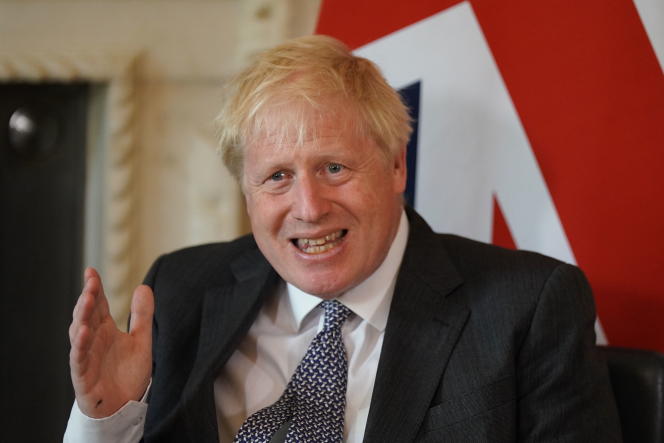New showdown in sight between London and Brussels. After months of stalemate, the British government took action on Monday, June 13, by presenting to Parliament its bill which calls into question the post-Brexit status of Northern Ireland.
London believes, in fact, that it can no longer wait given the political paralysis caused by the Northern Irish protocol in the British province. After threatening to purely and simply override this international treaty which it negotiated and signed, the government of Boris Johnson has chosen to legislate to modify it unilaterally.
“We are very clear that we are acting in a legal manner”, nevertheless assured the head of diplomacy Liz Truss on television. If passed, which could take months, the text “will end this untenable situation where the people of Northern Ireland are treated differently from the rest of the UK, will protect the supremacy of our courts and our territorial integrity,” she said in a statement, arguing for a “reasonable solution.” She reiterated that London remains open to a negotiated solution, but on condition that the EU agrees to “change the protocol” and not just adjust it, as is currently the case.
‘Pretty trivial series of adjustments’, says Boris Johnson
To avoid the return of a border between Northern Ireland and the Republic of Ireland, a member of the EU, the protocol creates a de facto customs border between the British province and the island of Great Britain. This situation disrupts the territory’s supplies and sows anger in the Unionist community attached to remaining within the United Kingdom. For Brussels, these provisions in force since January 1, 2021 are essential to protect the integrity of the European market.
With this project, the British government wants goods moving and remaining within the United Kingdom to pass through a “green channel”, freeing them from administrative procedures. Goods destined for the EU will remain subject to all the checks and controls applied under European law.
According to the bill, the province will be able to benefit from the same state aid as the rest of the United Kingdom and disputes will be settled before an independent arbitration mechanism and no longer before the European Court of Justice, a major point of contention between London and Brussels. “Frankly, it’s a fairly trivial series of adjustments”, relativized Boris Johnson on LBC radio, assuring that the project was legal. “Our primary commitment as a country is to the Good Friday Agreement,” signed in 1998 to end three decades of violence between Unionists, mostly Protestants, and Republicans, mostly Catholic, that left 3,500 dead.
In a joint letter, elected officials from parties representing the majority of the Local Assembly (including Sinn Fein) said they “reject in the strongest possible terms” the UK law. For them, “while not ideal, the protocol represents the only protection available” against the effects of Brexit but also “an economic advantage” with “access to two major markets”.
Brussels threatens London with legal action
Liz Truss explained herself by calling, on Monday, the Vice-President of the European Commission Maros Sefcovic, his Irish counterpart, Simon Coveney, then the American Secretary of State Antony Blinken, while the administration of Joe Biden has shown very critical. In a phone call, Antony Blinken urged London to “continue negotiations in good faith” with the EU and pleaded with Liz Truss for a “solution that preserves the gains of the Good Friday Agreement”.
For its part, the European Commission has threatened London with legal action: “It is with great concern that we note the decision taken today by the British government (…). Unilateral action damages mutual trust,” Vice President Maros Sefcovic said. “As a first step, the Commission will consider continuing the infringement procedure launched against the UK government in March 2021,” Mr Sefcovic said.
This procedure, which can lead to a referral to European justice, was put on hold by the Commission in September 2021, “in a spirit of constructive cooperation, to allow the search for common solutions”, he recalled. “The unilateral action of the United Kingdom goes directly against this spirit”, denounced the European official.

















